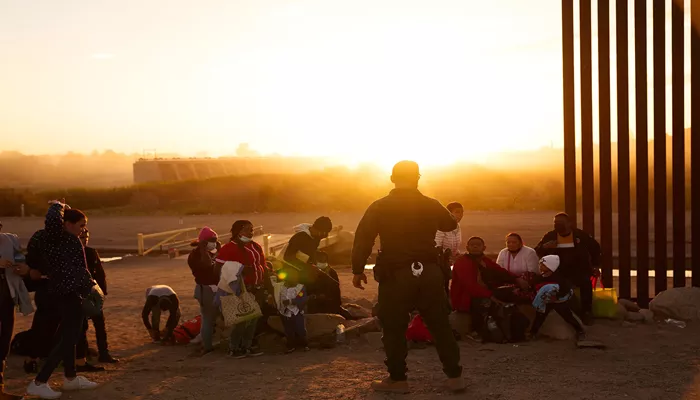Last year, the Saugus Public School Committee approved a new admissions policy aimed at simplifying student enrollment. However, critics argue that the policy’s strict requirements for proof of legal residency and potential penalties for non-compliance are designed to exclude immigrants from the district located just outside Boston.
The issue of immigrant children attending schools is a contentious topic that extends beyond Massachusetts. Advocates worry that it could become a significant part of the national conversation if Donald Trump secures a second term as president. In various states, including Oklahoma, Texas, and Tennessee, conservative lawmakers are questioning whether undocumented immigrants should have access to public education, raising concerns about challenges to the landmark 1982 Supreme Court ruling in Plyler v. Doe. This ruling established that denying education based on immigration status is unconstitutional.
Saugus’s new policy mandates that incoming students provide immigration documents and confirms that only “legal residents” living in Saugus can enroll. Over the past decade, the percentage of students learning English in Saugus has nearly tripled to 31%. Families must also complete a town census and provide various documents proving their residency and identity.
Civil rights lawyers argue that these requirements are excessive and violate federal law by disproportionately affecting immigrant families who may not possess the necessary documentation, regardless of their legal status. Vincent Serino, chair of the Saugus school committee, stated that the policy is merely an update to existing residency rules and is not intended to exclude immigrants.
However, one Nicaraguan mother reported that it took her six months to enroll her 8-year-old child due to the document demands. Speaking anonymously for fear of repercussions, she said her lease was not accepted by the town, and her complaints were ignored.
Experts in immigration law caution against underestimating efforts to challenge Plyler v. Doe, especially given the current conservative majority in the Supreme Court’s willingness to overturn established legal precedents on issues like abortion rights and affirmative action. Trump has made immigration a focal point of his 2024 campaign, pledging to carry out extensive deportations if elected. He has used derogatory language about immigrants and linked them to public health concerns.
While it is acknowledged that immigrant populations can strain school resources—leading to crowded classrooms and increased needs for bilingual education—Tom K. Wong from the U.S. Immigration Policy Center notes that denying education would have previously been seen as an extreme viewpoint but is now gaining traction in political discourse.
Earlier this year, the Heritage Foundation encouraged states to implement policies requiring schools to charge tuition for undocumented students, suggesting such actions could prompt legal challenges that might lead the Supreme Court to reevaluate Plyler v. Doe.
In Oklahoma, state education officials have announced plans to assess the financial impact of illegal immigration on schools. Ryan Walters, Oklahoma’s education superintendent, claimed that failing federal border security has harmed local schools.
Some school districts have resisted these pressures, asserting they will not check students’ immigration statuses. Union Public Schools in Tulsa emphasized that federal law prohibits inquiries about immigration status or citizenship documentation.
In Tennessee, a proposal for universal school vouchers sparked debates about whether undocumented students should be excluded from public education. Although some conservative legislators supported this exclusion, concerns over potential legal ramifications led Governor Bill Lee to abandon his voucher plan.
The Saugus school committee approved its admissions policy in August 2023, shortly after Massachusetts Governor Maura Healey declared a state of emergency due to a surge in migrant families seeking shelter in the state. Serino noted that discussions about updating residency rules began well before this crisis emerged.
Local advocates argue that the new policy has created barriers for at least two immigrant families attempting to enroll their children in Saugus schools. Lawyers for Civil Rights and Massachusetts Advocates for Children intervened to assist these families.
Oren Sellstrom from Lawyers for Civil Rights stated that the policy is unlawful and should be revised so all children can access education without discrimination based on immigration status. In Texas, Governor Greg Abbott has called for challenging Plyler v. Doe and suggested that federal funding should cover education costs for undocumented students.
In June 2024, Texas Republicans included measures aimed at limiting educational access for non-citizen children in their legislative agenda. The party’s priorities include ending public services for undocumented immigrants while allowing emergency medical care.
As debates over educational access continue across states like Massachusetts and Texas, advocates remain vigilant against policies perceived as exclusionary or discriminatory toward immigrant families seeking educational opportunities for their children.
Related topics:
- U.S. Law Guarantees Education for Immigrant Children, but Some Conservatives Want to Change That
- Indonesian E-Visa Glitch Exposes Personal Data of Tourists
- US Government Sends Mixed Signals on F-1 Visa Study Abroad Policies


